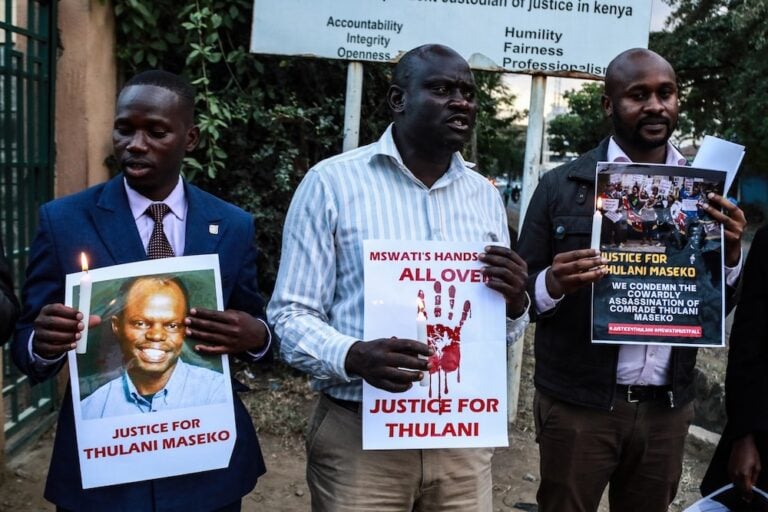Journalists working for a government-owned newspaper are being harassed by authorities following a series of stories the newspaper published.
(MISA/IFEX) – Journalists working for the government-owned “Swazi Observer” newspaper are being harassed by authorities following a series of stories the newspaper published concerning the stabbing and beating of a journalist by the son of a prominent church leader in December 2008. The church leader is a member of King Mswati’s advisory committee, the Swazi National Council (SNC).
One journalist, who declined to be identified for fear of retaliation, told the Media Institute of Southern Africa (MISA) Swaziland that they have received ‘disturbing’ calls from authorities who have warned them against the continued publication of stories about the bishop’s son. The journalist suspects the bishop might have complained to the authorities against the newspaper, which is owned by the King, to influence the censoring of the newspaper.
The newspaper reported this week that the bishop’s son, in the company of his wife who is a police officer, went on a rampage recently and vandalized property at a night club after an all-night drinking spree. The following morning, the son was handed over to the police by his father. The incident was also confirmed by the police.
“Soon after the stories, we received calls, mostly from members of the SNC, warning us against further publication of the stories about the bishop’s son,” said the journalist.
“We are not happy. The authorities have no right to censor us on stories which are of public interest. Moreover, this man has proved to be a public nuisance and does not deserve to be protected,” he added.
The bishop’s son is currently out on bail for attacking and stabbing the “Swazi Observer” news editor, Ackel Zwane, in December 2008. The case is pending before the Magistrate’s court.
The MISA Swaziland chapter condemns the harassment and censoring of journalists. MISA calls on whoever is aggrieved about stories published by a newspaper to use proper channels to have his complaint addressed instead of threatening journalists. The “Swazi Observer”, like all media houses, has internal mechanisms of dealing with public complaints and these should be used by aggrieved parties.


